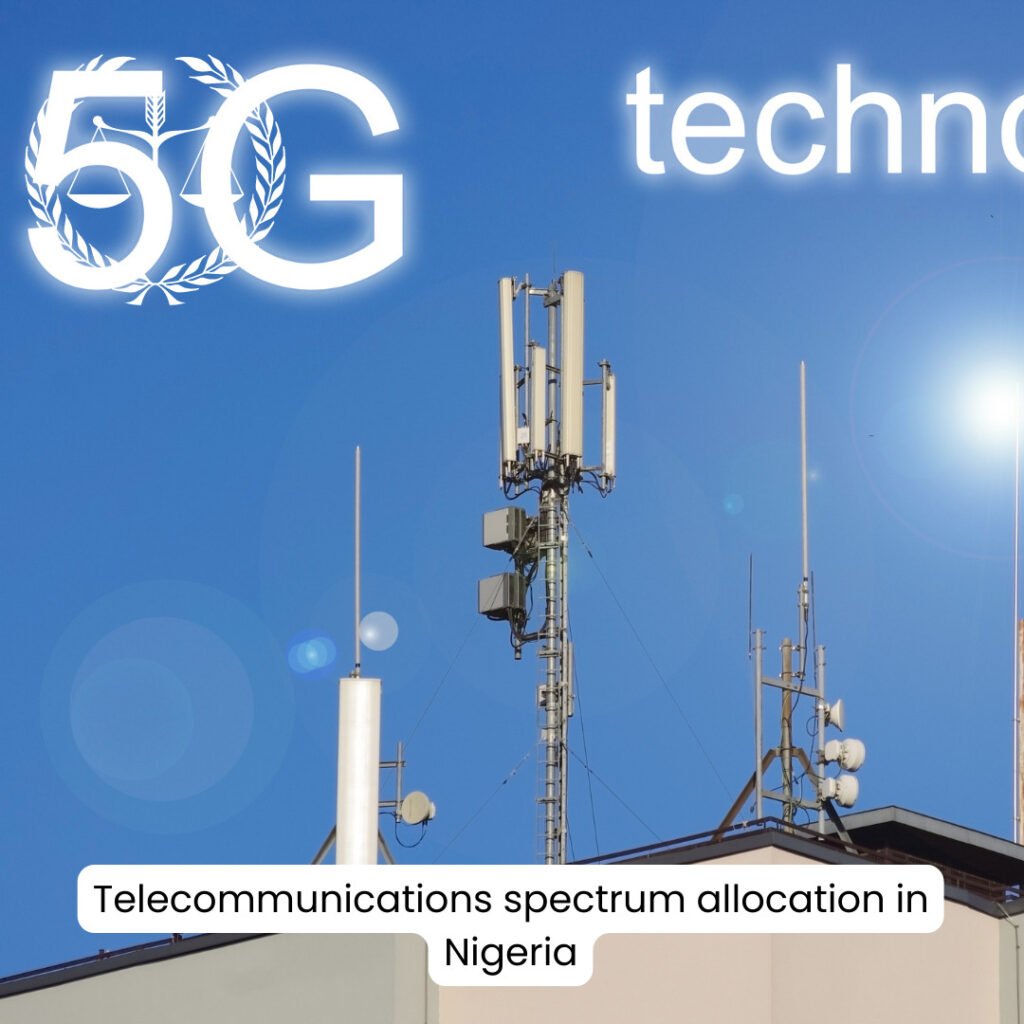Telecommunications Spectrum Allocation in Nigeria
In the digital age, the availability and effective management of the electromagnetic spectrum are crucial for the seamless operation of wireless communication networks. In Nigeria, a country experiencing rapid technological advancement, the telecommunications spectrum serves as the backbone of modern connectivity, supporting a wide range of services from mobile communication to internet access. The allocation and regulation of this finite resource are essential to ensure efficient and equitable use, fostering innovation, economic growth, and improved communication infrastructure. In this article, we delve into the realm of telecommunications spectrum allocation in Nigeria, exploring its significance, challenges, regulatory approaches, and implications for telecommunications operators, consumers, and the broader technological landscape.
The Importance of Telecommunications Spectrum
The telecommunications spectrum is a range of electromagnetic frequencies used for wireless communication. It encompasses radio waves used for various purposes, including mobile voice and data services, broadcasting, satellite communication, and internet of things (IoT) devices. Proper allocation and management of the spectrum are critical for preventing interference, optimizing bandwidth usage, and ensuring reliable communication services.

Significance of Telecommunications Spectrum Allocation
Telecommunications spectrum allocation holds immense significance for several reasons:
- Efficient Resource Utilization: Effective spectrum allocation maximizes the use of available frequencies, optimizing network capacity and data speeds.
- Market Competition: Fair spectrum allocation promotes healthy competition among telecommunications operators, leading to improved services and lower prices for consumers.
- Technological Innovation: Adequate spectrum availability drives innovation, enabling the deployment of advanced technologies such as 5G and IoT.
- Economic Growth: A well-managed spectrum supports economic growth by attracting investments, creating jobs, and fostering a vibrant digital economy.
Challenges in Spectrum Allocation
Telecommunications spectrum allocation in Nigeria faces challenges:
- Limited Spectrum: The electromagnetic spectrum is a finite resource, leading to potential scarcity and competition for available frequencies.
- Interference: Improper spectrum allocation can result in interference between different wireless services, degrading the quality of communication.
- Policy Alignment: Ensuring alignment between spectrum allocation policies and broader national development goals can be complex.
- Emerging Technologies: New technologies like 5G and IoT require careful spectrum planning and allocation to ensure optimal performance.
Regulatory Approaches
Regulatory approaches to telecommunications spectrum allocation can include:
- Auction and Assignment: Conducting competitive auctions to allocate spectrum licenses to operators based on demand and value.
- Spectrum Sharing: Allowing multiple operators to share spectrum resources under defined conditions, promoting efficient use.
- Priority Access: Allocating spectrum for specific purposes, such as emergency services or public safety, to ensure uninterrupted communication.
Implications and Opportunities
Telecommunications spectrum allocation has implications for telecommunications operators, consumers, and the broader economy:
- Network Quality: Proper spectrum allocation contributes to improved network quality, faster data speeds, and enhanced user experience.
- Innovation: Adequate spectrum availability fosters innovation by enabling the deployment of advanced technologies and services.
- Digital Inclusion: Effective spectrum allocation supports efforts to bridge the digital divide by expanding access to underserved areas.
Charting the Path Forward
The future of telecommunications spectrum allocation in Nigeria holds promise:
- Spectrum Planning: Developing comprehensive spectrum management plans that account for current and future technology trends is crucial.
- Stakeholder Engagement: Engaging with telecommunications operators, technology experts, and government agencies can lead to well-informed spectrum allocation decisions.
- Inclusive Policies: Designing policies that promote fair competition, innovation, and access for all segments of society ensures equitable spectrum utilization.
- International Collaboration: Collaborating with international telecommunications bodies can facilitate harmonization of spectrum allocation for cross-border services.
Conclusion
Telecommunications spectrum allocation is the cornerstone of modern connectivity, enabling seamless communication and technological innovation. By adopting principles that balance efficient resource utilization, innovation, and regulatory oversight, Nigeria can create an environment where the spectrum serves as a catalyst for progress, economic growth, and improved digital services. As Nigeria continues its technological evolution, a proactive and adaptive approach to spectrum allocation will contribute to a digital future that values connectivity, fosters economic prosperity, and supports a thriving and interconnected society.
